Breaking News: Senior Investigative Officer Leads Pivotal Security and Host Community Dialogue in Finima
Finima, Rivers State – 03 June 2025
By Engr Tamunofiniarisa Brown
In a development that promises to shape the security architecture and community relations in the Niger Delta, ACP Victor Izebele, the senior officer in charge of the State Investigation Department (SID) in Rivers State, paid an official visit to the Finima Divisional Police Headquarters. Extending his tour later to the Amadabo-in-Council at the Palace of the Amadabo of Finima, the operation underscored both the indispensable role of law enforcement in maintaining local order and the community’s long-held demands for their rightful status as a host community. In a series of candid and impassioned addresses, key community figures laid out their stance on equitable resource distribution, host community rights, and the urgent need for enhanced security infrastructure in the region.
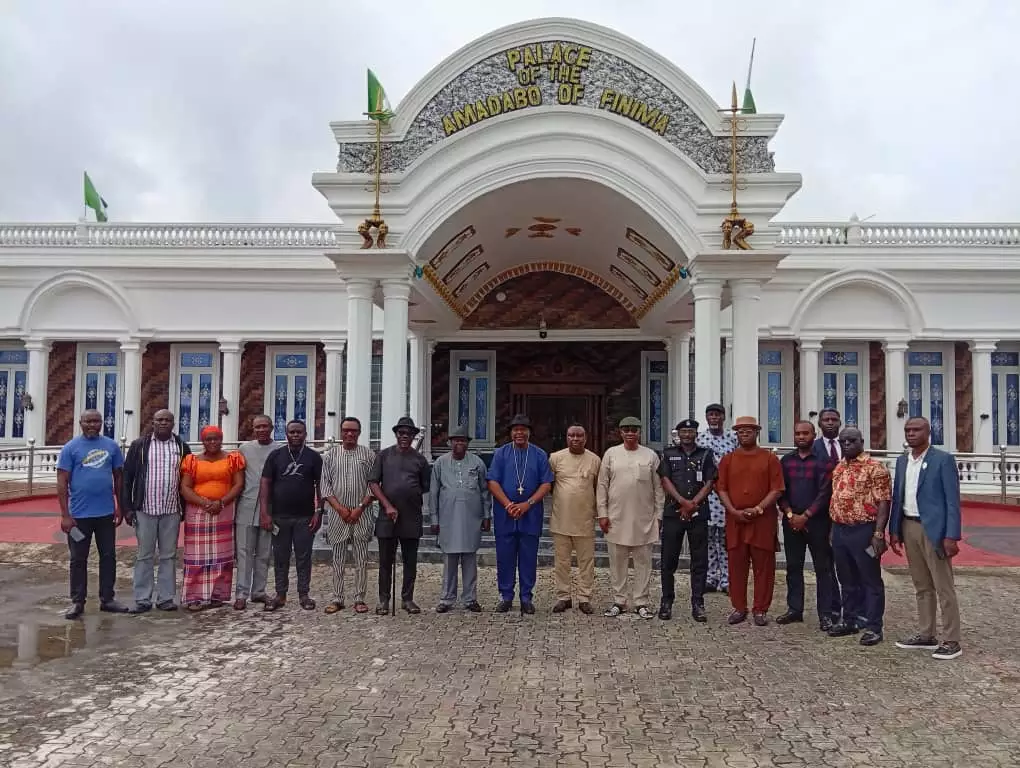
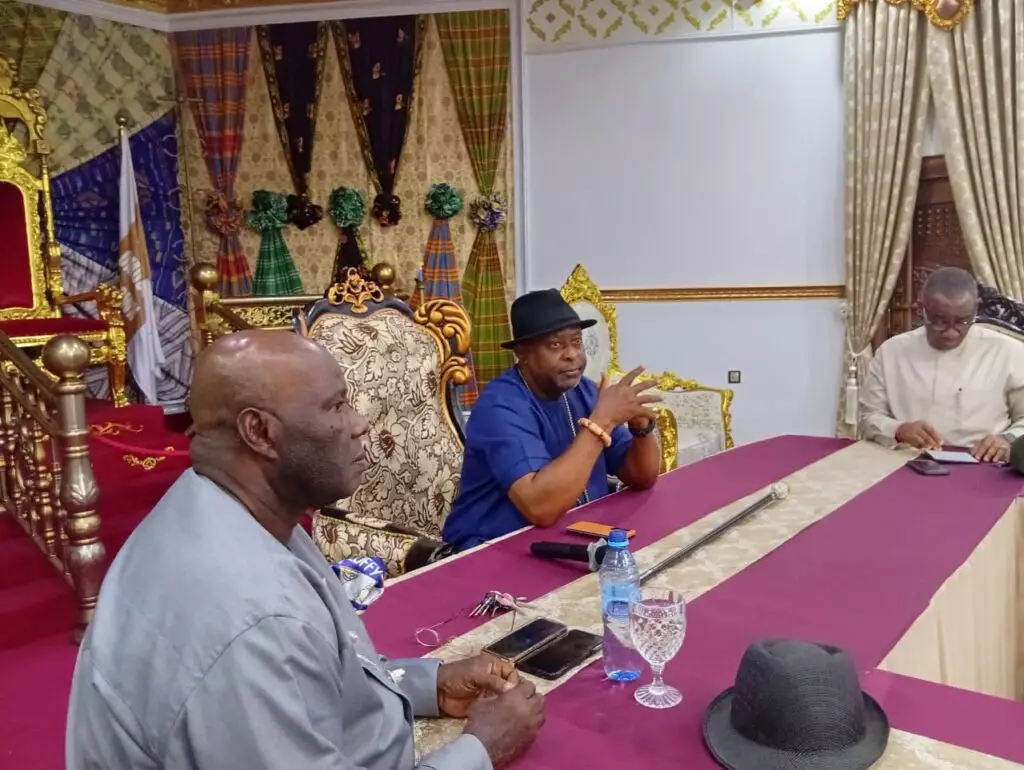
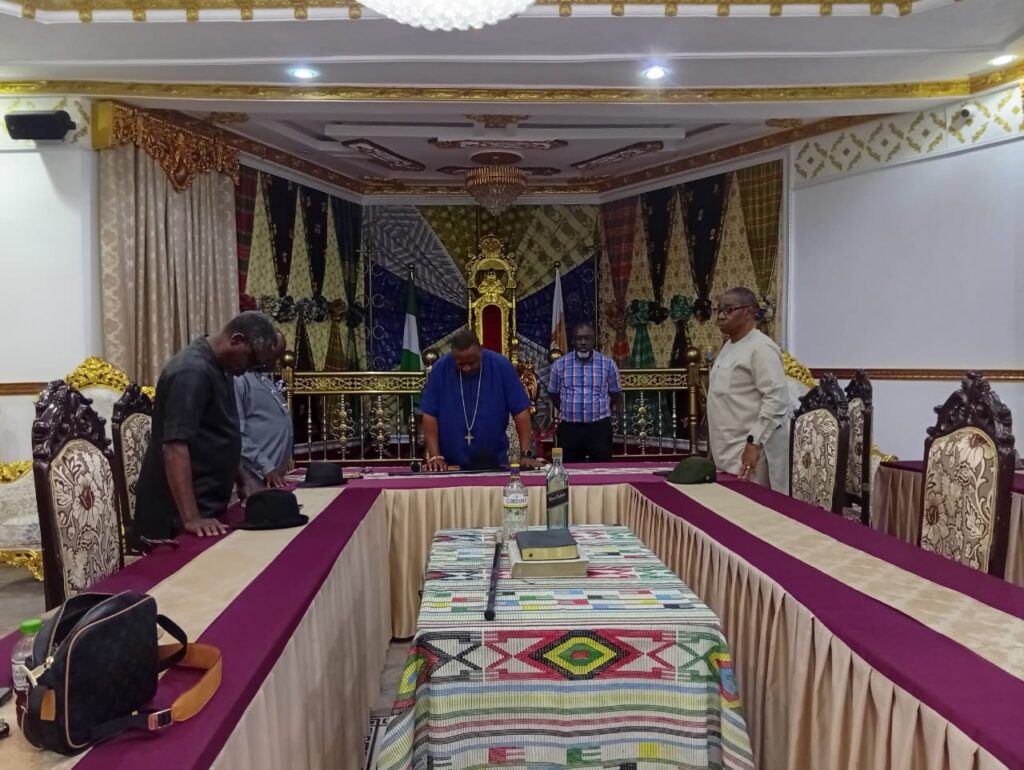
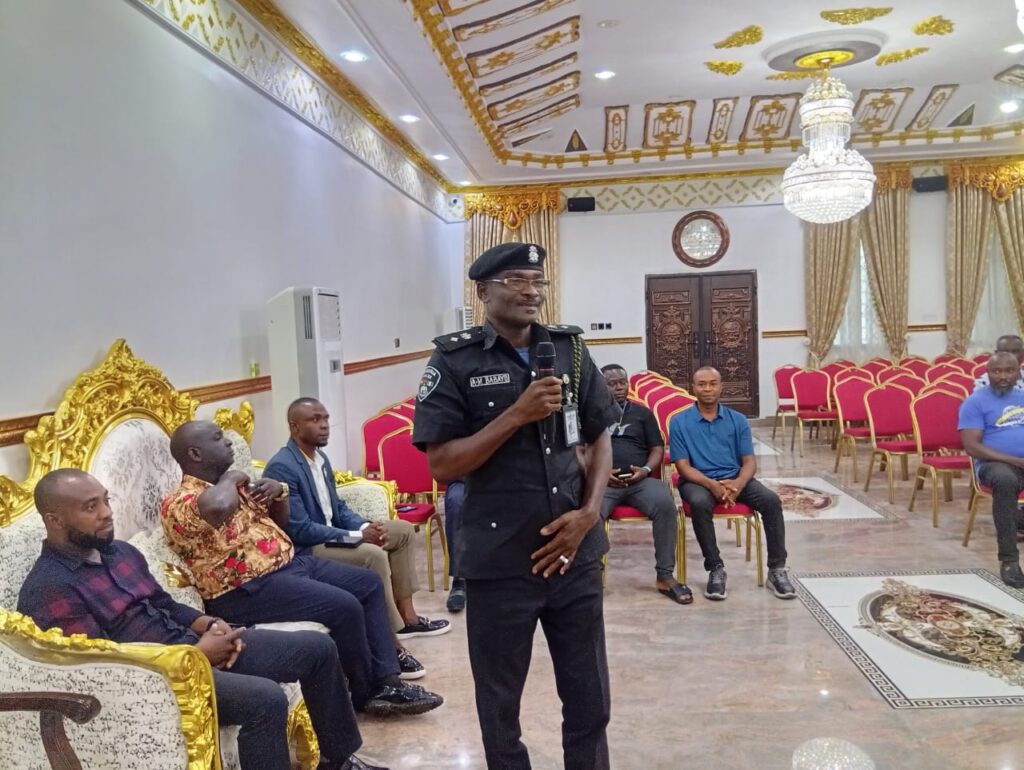
Over the course of the visit—which many now view as a watershed moment in community–state relations—the local leadership and senior police officers engaged in an exchange that spanned legal, economic, and cultural dimensions. The amplified dialogue was punctuated by the striking and memorable words of the Amadabo of Finima, Engr. (Dr.) Dagogo Lambert Brown, Kongo the VII, whose impassioned declarations affirmed Finima’s role as a vital stakeholder in the regional dynamics of resource control and community security. His words, laced with historical context and community pride, resonated not only with those present at the ceremony but also with many observers following developments across the oil-rich communities of the Niger Delta.
A Visit Marked by Dual Purpose: Security Reinforcement and Community Recognition
ACP Victor Izebele’s visit to the Finima Divisional Police Headquarters came as part of a broader initiative by the Rivers State government to reinforce the commitment of its security apparatus in safeguarding vulnerable communities. Arriving in Finima amid heightened security protocols, the ACP’s itinerary was meticulously planned to include both a review of ongoing security operations and a consultative meeting with traditional community leaders. The police headquarters, serving as the nerve center of security in the area, was abuzz with activity as officers briefed the ACP on local intelligence and the measures implemented since the last security alerts in the region.
The visit was not merely a routine inspection. Instead, it was charged with an urgent message—ensuring that Finima’s unique status as a host community was recognized, protected, and further developed. The Finima community, long known as the only host community to all major International Oil Companies (IOCs) operating in the region, has struggled to ensure that resource agreements reflect their indigenous rights. In this context, the ACP’s engagement with the community was welcomed as evidence of renewed government attention on long-simmering issues of host community rights and infrastructural inadequacies.
At the heart of the visit was a mutual acknowledgment between state security operatives and community leaders that without robust security measures and clear community representation, the delicate balance of economic development and social stability could be jeopardized. ACP Izebele’s presence in Finima—consultative, observant, and open to dialogue—sent a strong message to stakeholders in the region: the state remains committed to protecting its citizens, ensuring that development does not come at the expense of community rights or safety.
The Voice of the Community: Engr. (Dr.) Dagogo Lambert Brown’s Bold Address
In a captivating address delivered at the Palace of the Amadabo of Finima, the Paramount Ruller of FInima, Engr. (Dr.) Dagogo Lambert Brown FNSE FAIPA, MSPE, Kongo the VII, laid bare the historical and contemporary grievances of Finima. Using a metaphor that captured the complexity of resource allocation in the region, he stated,
“The elephant is too big to be shared equitably. We don’t have problems. Our neighbours are impacted communities. We are not saying they must not benefit. But as a host community, we will not allow anybody to deny us of our legitimate and inalienable internal, natural rights of who we are as host community.”
The Amadabo’s remarks highlighted the essence of a long-standing dispute: while Finima acknowledges that neighbouring communities often face their own challenges as impacted communities, Finima’s historical status as the designated host community for major oil companies remains non-negotiable. His pointed reference to a judicial confrontation with Nigeria NLNG, where Finima’s legal team contested efforts to downplay the community’s role, illuminated the legal dimensions of the struggle for host community rights. According to the Amadabo of Finima, the federal court in Abuja emphatically ruled in favour of Finima, affirming that any agreements signed for oil exploration and production specifically recognised Finima as the host community—a principle that should guide resource distribution and community benefits.
The Amadabo’s remarks did more than recount legal victories; they served as a call to arms against any attempt to dilute Finima’s rightful gains for the community. “If they are not your host community, who is your host community?” he queried, underscoring that agreements with international oil companies like Shell, ExxonMobil, and Total were executed solely with Finima in mind. His criticism was not merely theoretical. It challenged the structural inequities that often see host communities being sidelined in discussions on economic benefits. Instead, Finima’s leadership demanded equitable treatment and transparency in the implementation of these agreements.
Throughout his testimony, the Amadabo balanced legal assertions with cultural symbolism. The recurring metaphor of sharing an elephant—an image that resonates with the traditional values of communal sharing and respect for natural rights—was a powerful rhetorical device. By comparing resource distribution to the act of dividing an impossibly large elephant, he articulated that while there is plenty for everyone, the process must ensure that no portion is unjustly withheld from those who have nurtured the land and culture. This vivid imagery not only galvanised support among community members but also served as a clarion call for just governance and equitable resource management in the region.
Deep-Rooted Challenges in the Niger Delta: Historical Background and Current Dynamics
The tensions articulated by Finima’s leadership do not exist in a vacuum. They are intrinsically linked to the complex history of the Niger Delta—a region marked by both immense natural resource wealth and longstanding socio-economic challenges. Over the decades, the arrival of multinational oil corporations in the area has brought about both economic opportunities and disruptions. While the inflow of foreign investment has spurred infrastructural development and created job opportunities, it has also given rise to disputes over land rights, environmental degradation, and the equitable distribution of oil revenues.
Host communities like Finima have traditionally been referrers of social cohesion and custodians of cultural heritage in the region. However, over time, the rapid expansion of oil exploration and extraction projects has strained these bonds. Agreements signed with oil companies have often been mired in controversy, with many local leaders arguing that they fail to adequately reflect the community’s contributions and the environmental toll of such operations. The Amadabos reference to multiple legal actions against Nigeria NLNG and comparisons with deals made with Shell, ExxonMobil, and Total are testament to the many battles fought in courtrooms and negotiation halls to ensure that host communities receive their due as per statutory and traditional rights.
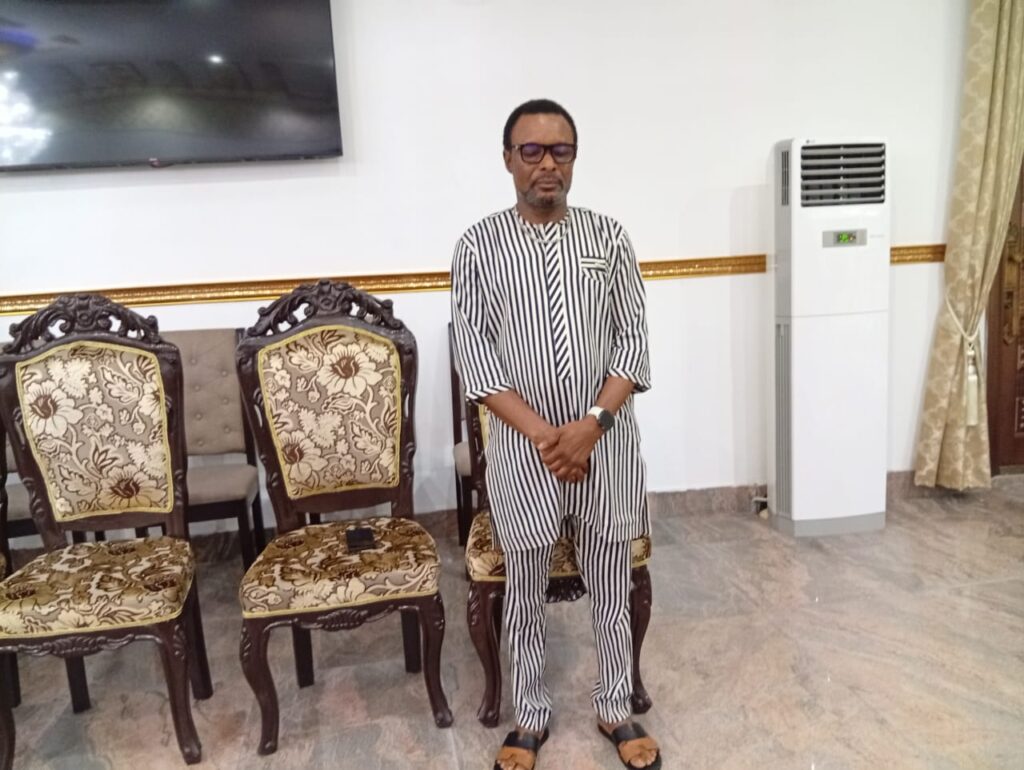
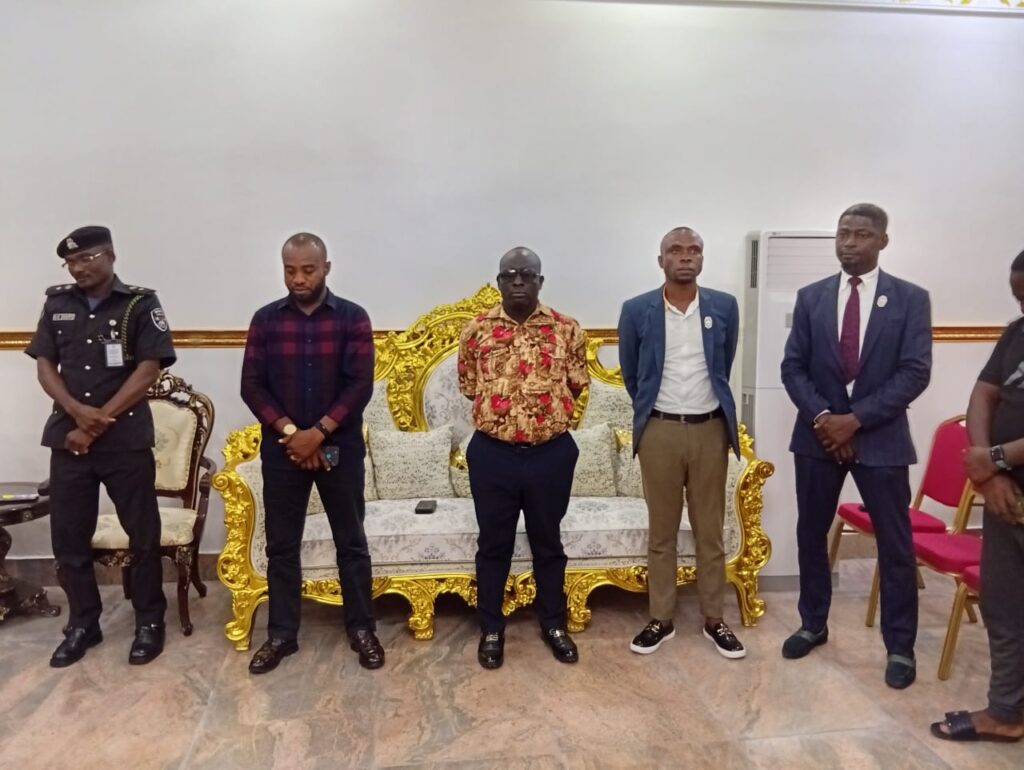
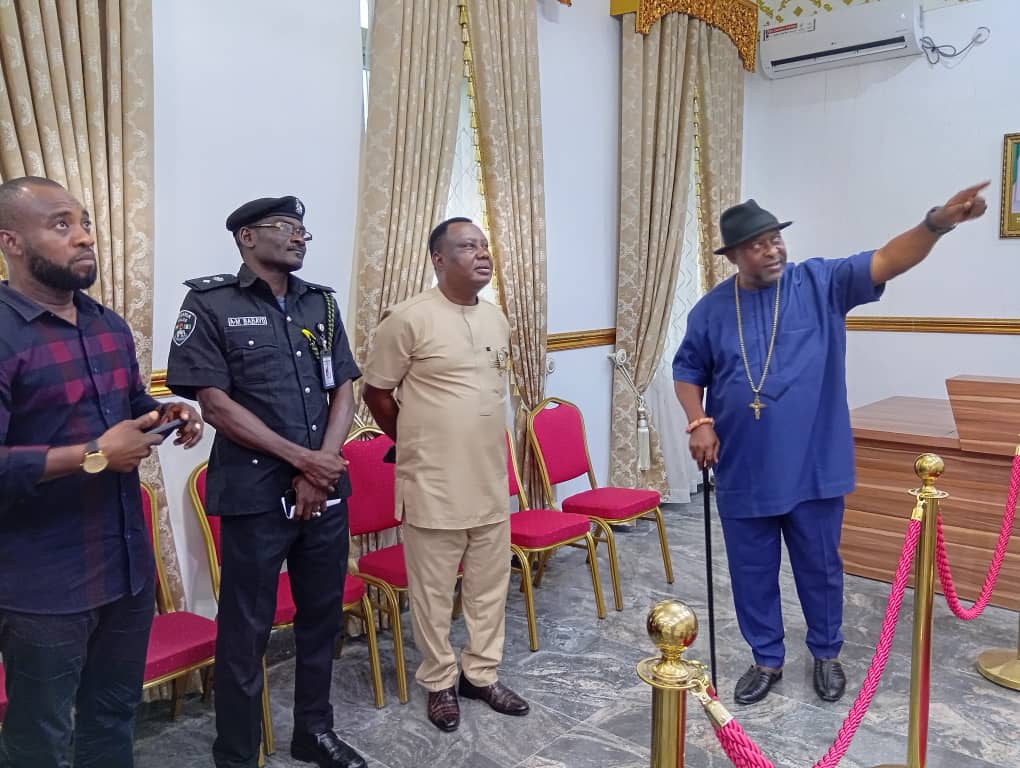
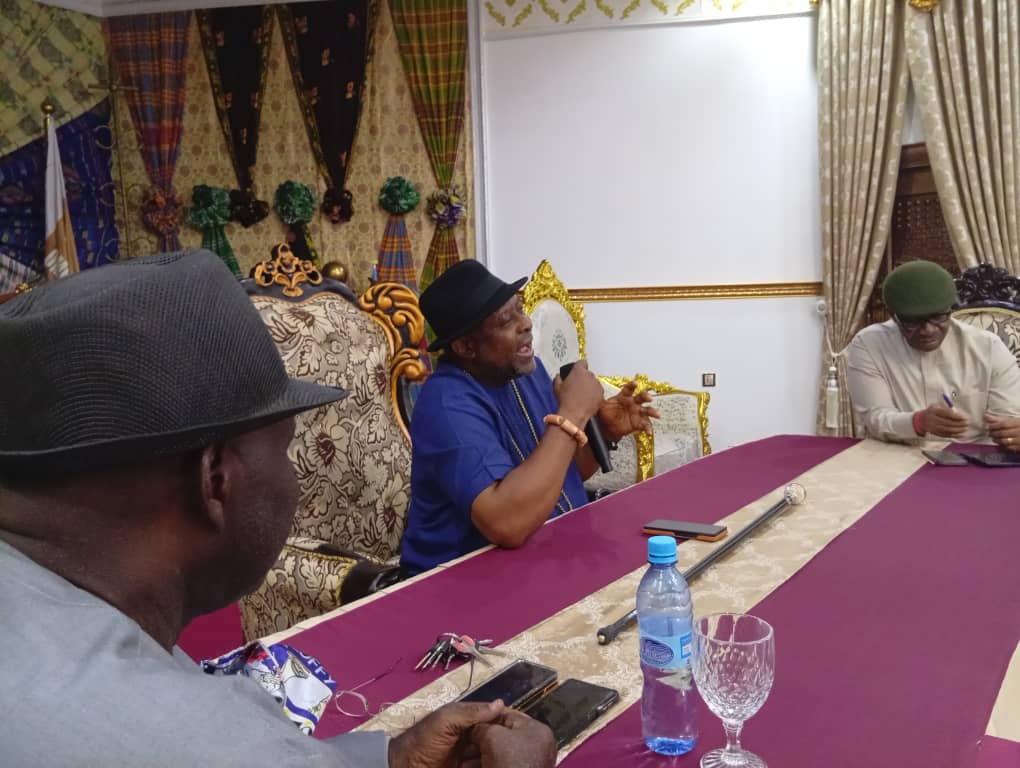
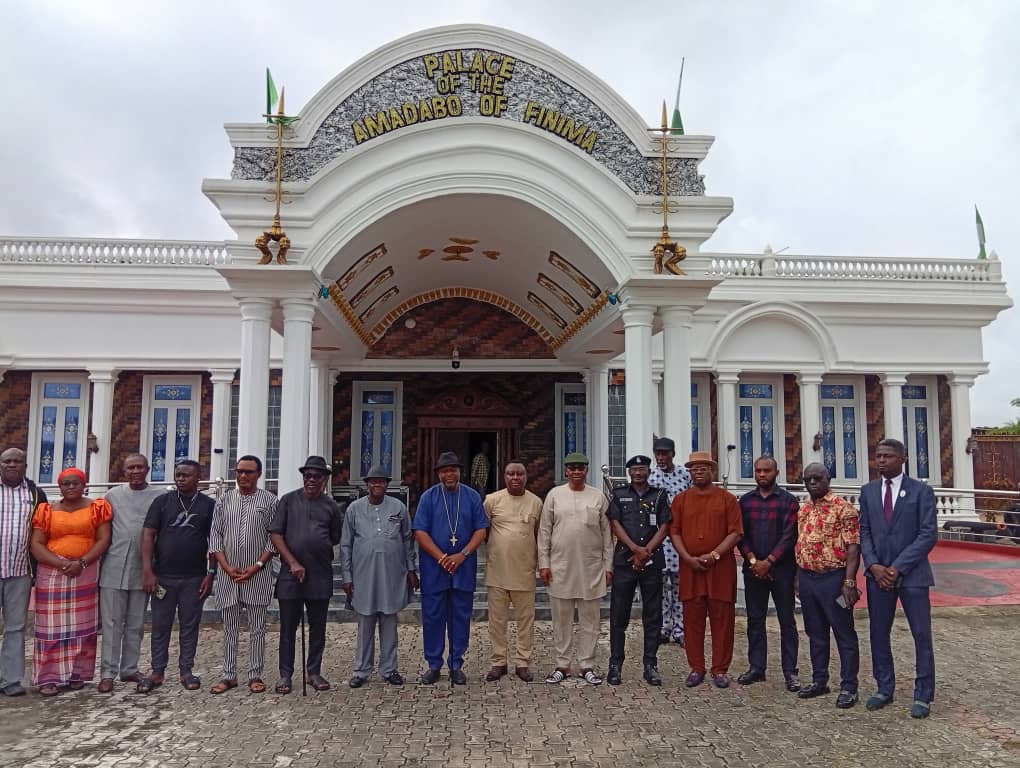
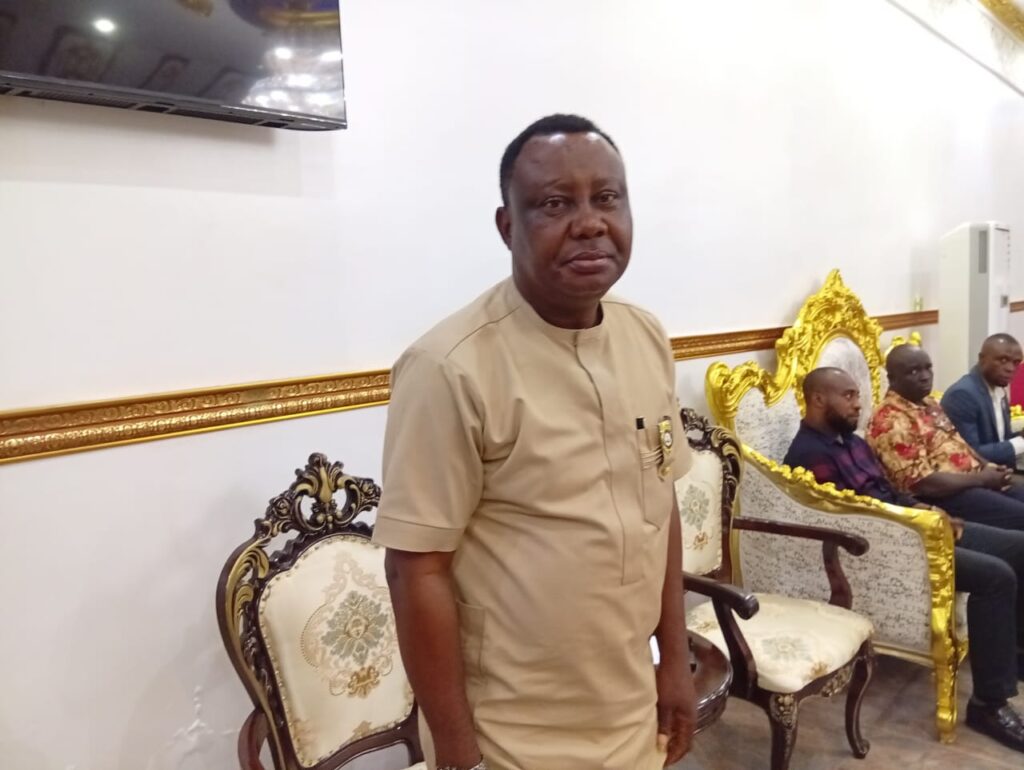
The historical neglect of host community perspectives has contributed to a sense of alienation, prompting community leaders to resort to advocacy, legal recourse, and, increasingly, public demonstrations. The legal victory in Abuja, as boasted by the Amadabo is a rare glimpse of hope—a landmark decision that acknowledged Finima’s leadership role and its entitlement to benefits established under national and international norms. Yet, despite this ruling, challenges persist, especially as economic interests continue to clash with cultural and environmental imperatives. Finima’s leaders are clear that while they are open to sharing benefits with neighbouring communities, the primary recognition of their status must never be compromised.
The Niger Delta’s intricate web of inter-community relationships further complicates the picture. Finima is not the only community in Bonny, but its unique position as a host community has made it a central figure in regional dynamics. The community’s influence extends beyond its immediate boundaries, acting as a fulcrum around which local disputes, resource negotiations, and security challenges revolve. The Amadabo’s discourse eloquently captured this reality by noting that while the river may divide several communities, it is Finima that stands as the central host—a point of contention that has repeatedly been raised during discussions over community rights and resource allocation.
A Call for Enhanced Security: Community Concerns and the Role of Law Enforcement
Safety and security have emerged as critical concerns amidst the economic and social upheaval in the Niger Delta. During his visit, ACP Victor Izebele not only reviewed the operational readiness of the Finima Divisional Police Headquarters but also engaged in detailed discussions about the structural security demands of the community. This comes on the heels of incidents that have, on occasion, roused unrest during public ceremonies and communal gatherings.
The Amadabo, while speaking at the palace, underscored the community’s vulnerability to disturbances. Citing past instances when escalating tensions led to brief violent clashes during protests, he expressed dismay over the repeated episodes that have marred local celebrations. “There was a time when instead of a celebratory ceremony, the news quickly turned into reports of unrest and fights in Finima,” he recalled. The Amadabo’s narrative was laced with anecdotes of how security personnel, including the Army and Navy forces, had been dispatched on multiple occasions to de-escalate potentially volatile situations, which were all false alrarm by our brothers in Bonny. He indicated that while such interventions were necessary, there was an urgent need for a more permanent and locally accessible security presence to see things first hand for themselves rather than propaganist manipulations.
The community’s call for a dedicated police post is particularly noteworthy. In his address, Alabo Airigha Christopher Brown, the Alabo of Goni-Brown Chieftaincy House of Finima, echoed similar sentiments when highlighting the long history of cooperation between the Finima community and the Nigerian police. He remarked on the legacy of the first District Police Officer (DPO) in the region—a figure whose personal story and dedication illustrate the strength of police–community relations in Finima. Although his narrative carried touches of humour and nostalgia, it was also a powerful reminder of the continuous need for robust community policing.
According to Alabo Airiagha Christopher Goni Brown, the security challenges faced by Finima are multi-faceted. “We need a police post. If it is a settlement, we have a lighthouse,” he stated, pointing out that measures such as establishing a dedicated police post at strategic locations would go a long way in ensuring the safety of community members. His remarks were not merely wishful thinking; they came at a time when Finima was witnessing rapid infrastructural development, including preparatory moves to set up a military division and a Joint Task Force (JTF) post. These developments underscore Finima’s readiness to invest in its own security.
Addressing these concerns, ACP Izebele provided pragmatic advice. “On the aspect of the police outposts you brought up, I would suggest what usually leads to the creation of an outpost—the District Police Officer here is now in a position to issue a formal request,” he explained. He indicated that a written request from the palace to the Commission of Police, detailing the need for a police post and outlining logistical requirements, would likely expedite the process of establishing a facility that meets the community’s security demands. This measured response by the ACP signified that state authorities are receptive to the community’s appeals, provided that the requests adhere to established administrative protocols.
The dialogue between state security officials and Finima’s leaders is emblematic of a broader struggle. It reflects the interplay between traditional authority and modern governance structures, as well as the community’s insistence that its indigenous rights must be preserved in the face of external pressures. The call for enhanced security is not just about physical safety; it is also a demand for recognition and respect of Finima’s historical role as a host community. For Finima’s leaders, maintaining a secure environment is fundamental to preserving the community’s cultural heritage and ensuring its developmental aspirations remain unimpeded by criminal or vigilante actions.
The Dynamics of Host Community Rights: Legal Battles and Negotiated Equilibriums
One of the most compelling facets of today’s events was the in-depth discussion on the rights of host communities in relation to international oil companies (IOCs) operating in Nigeria. For decades, Finima has been the focal point of legal debates over who should rightfully benefit from the enormous wealth generated by oil exploration and production in the Niger Delta. This is a battle fought not just in local town halls but also in the corridors of the federal court in Abuja.
Engr. (Dr.) Dagogo Lambert Brown’s reference to the metaphorical “elephant” symbolized the massive potential revenue from oil resources—a resource that, according to him, cannot be divided equitably if the true host community is not properly acknowledged. “The elephant is big, you know. But for people to put up an oligarchical central core, a think that they can influence or interfere into the governance of another place, it will not work,” he passionately declared. His critique was aimed at external entities that, in his view, attempt to dilute Finima’s rights even as they benefit from the community’s hospitality and the fertile agreements signed with oil companies.
The legal battle referenced by Dr. Brown—with Nigeria NLNG taking center stage—serves as a stark reminder of the complexities involved in resource control in the Niger Delta. Over the years, several host communities have pursued legal recourse in courts to reassert their rights when oil companies, often backed by governmental authorities, have tried to sideline their interests. In the specific case of Finima, the federal court in Abuja ruled unequivocally that Finima’s status as a host community could not be disregarded. The ruling set a legal benchmark that underscored the community’s inalienable rights as enshrined in the agreements it had signed with major international oil companies.
This legal affirmation carries with it profound implications. For one, it empowers Finima and similar communities to have a stronger bargaining position when negotiating for infrastructural support, community development projects, and revenue allocation. More importantly, it challenges the prevailing narrative that host community status can be negotiated away or diluted under economic or political pressures. Finima’s leadership, emboldened by this legal victory, has made it abundantly clear that any attempt to shortchange the community will face not only the force of law but also the resolute spirit of its people.
Yet, even as Finima celebrates this judicial win, the community remains acutely aware of the need to maintain a delicate balance. In his address, Dr. Brown noted that while the community is determined to secure its interests, it is equally willing to ensure that equitable benefits are shared with impacted neighbours. “Everybody gets his own portion to take,” he explained, invoking an image of communal sharing akin to dividing a well-cooked dish of soup. However, the metaphor also carried a warning: if meddling external forces try to take a portion of that soup without proper authority, the quality of the communal dish will be irreparably compromised. In this way, the dialogue about host community rights transcends legalistic debates—it is a matter of safeguarding the very essence of Finima’s identity and its future.
The legal and economic dimensions of the discussion also highlight the broader regional challenges in the Niger Delta. With multiple communities vying for recognition and a fair share of the oil wealth, the need for transparent, accountable, and culturally sensitive resource management cannot be overemphasized. Finima’s insistence on remaining the primary host community while extending benefits to others—if, and only if, these arrangements are handled with fairness—provides a model for how indigenous rights can be harmonized with modern economic imperatives. It is a model that, if replicated, could potentially usher in a new era of stability and prosperity in one of Nigeria’s most resource-rich yet troubled regions.
Cultural Resonance and the Legacy of Security Cooperation
Beyond the pressing issues of resource rights and legal battles, the visit to Finima also shone a spotlight on the longstanding relationship between the community and the Nigerian police. In an address that combined wit, historical reference, and cultural pride, Alabo Airigha Christopher Brown, the Alabo of Goni-Brown Chieftaincy House of Finima, reminded everyone present of the deep-rooted ties that have sustained security and order in the community for generations.
Drawing on historical anecdotes, Alabo Brown recounted tales of the very first District Police Officer (DPO) in the region, whose commitment to duty laid the groundwork for robust police–community relations. “We used to have a police post, and from him to date, we have been in a very good time in taking care of all we need to do,” he recalled with pride. Even as he jested about the familiar misidentification of the first DPO’s religious affiliation—a light-hearted dig that underscored the idiosyncrasies of local lore—his underlying message was one of gratitude and cautious optimism about the state of policing in Finima.
For Alabo Airigha Chrisotpher Goni Brown, the visit by ACP Victor Izebele was more than a mere formality. It was a tangible reaffirmation that the community’s safety is a matter of both local pride and national importance. “All we plead in our vote of consent, please let your door be open to us. Hear us. Even if they are crucifying us,” he implored, a statement that captured the collective yearning for respect, representation, and reassurance from state authorities. His plea for the establishment of a dedicated police post at strategic points such as at Lighthouse was presented as a practical solution to ensure that Finima’s residents are never left vulnerable to threats—be they from external agitators or internal discord.
The image that emerged from these exchanges was one of a community that is acutely aware of its history, fiercely protective of its legacy, and unyielding in pursuing solutions that harmonize tradition with modernity. As Finima’s leaders articulated their demands for better security infrastructure, they also showcased a nuanced understanding of the intertwined fates of community safety and economic progress. By calling for a new police outpost—a gesture that would not only bolster their defence capabilities but also symbolize formal recognition of their host community status—Finima is positioning itself at the forefront of regional dialogue on security and development.
ACP Victor Izebele’s measured response on the issue of police outposts further reinforced this dynamic. In explaining that the usual process for establishing a new outpost involved a written request initiated by local leadership, he subtly acknowledged the legitimacy of the community’s proposal while also emphasising due process. “If there is a letter from the palace to the Commissioner of Police for the creation of such an outpost, the community would put across that the facility or the structure would be built to accommodate the person that would be deployed to such an environment,” he stated. His comments offered a clear roadmap for future cooperation—a path where traditional leadership and state mechanisms work hand in hand to secure lasting peace and stability.
The Broader Implications for Governance and Development in the Niger Delta
The Finima visit, with its rich tapestry of political, legal, cultural, and security narratives, carries implications far beyond its immediate geographical confines. In many ways, what unfolded in Finima is emblematic of the larger struggles in the Niger Delta—where communities have long straddled the dual challenges of harnessing the benefits of resource extraction while mitigating its adverse impacts.
As Finima’s traditional leaders cite their legal victories and demand greater attention to their rights as host communities, state agencies are increasingly recognising that sustainable development in the Niger Delta hinges on resolving these historical grievances. A secure and empowered host community not only paves the way for fair economic distribution but also acts as a bulwark against the volatility that has, in the past, led to cycles of unrest and conflict.
Key to this transformation is the acknowledgment of indigenous rights and a commitment to integrating community voices into the decision-making processes of resource management. Finima’s leadership—by vocalising their demands in both legal and communal forums—has set a precedent that other affected communities might soon follow. The insistence on formal recognition and the call for dedicated police infrastructure are symbolic of a broader shift towards participatory governance in the resource governance landscape of Nigeria.
Moreover, in a region where the interplay of international oil companies, local politics, and communal interests often leads to contention, Finima’s stance offers a compelling blueprint for balancing these competing demands. By ensuring that resource agreements unequivocally recognise the host community’s status, and by advocating for localized security measures, Finima is not just protecting its interests—it is also forging a path towards more equitable, transparent, and inclusive development.
The role of law enforcement, as demonstrated by ACP Victor Izebele’s visit, is equally critical in this narrative. In a delicate balance of power between state institutions and local communities, the ability of the police to act impartially and decisively is integral to maintaining peace and order. ACP Izebele’s willingness to engage with community leaders and consider their proposals—such as the establishment of a police post—reflects a progressive approach to policing that is attentive to local nuances and genuine community sentiments. This model of engagement, if replicated in other parts of the Niger Delta, could significantly reduce the friction between traditional authorities and modern governance structures, thereby promoting a more stable environment that is conducive to economic growth.
Voices from the Field: Community Reactions and Closing Remarks
As the meeting at the Amadabo-in-Council drew to a close, the atmosphere was charged with a sense of cautious optimism. Alongside the impassioned speeches and detailed expositions on host community rights, there were quiet moments of reflection when members of the Finima community—represented by figures such as Mr. Reginald Brown—expressed their gratitude for the presence of senior state officials in their midst. In a brief but poignant vote of thanks, Mr. Reginald underscored the community’s contentment at witnessing groundbreaking engagements that bridged the gap between local concerns and state priorities.
Mr. Reginald’s remarks, although brief in comparison to the lengthy discourses that had preceded them, were rich in sentiment. “The Finima people are happy to be seeing more of the senior officers visit us. We appreciate the opportunities for dialogue and the tangible steps being taken to address our security and infrastructural needs,” he affirmed. His words resonated strongly amongst those gathered, acting as a reminder that beyond the legal and economic implications of these discussions, there was an undeniable human element at stake—a community yearning for acknowledgement, respect, and the assurance of a safer future.
In a region where the scars of past neglect run deep, the events of the day provided a glimpse of a possible future where tradition and modern governance converge for the common good. The collective voice of Finima, articulated through both tradition-bearers like Dr. Dagogo Lambert Brown and modern bureaucrats like ACP Victor Izebele, signaled that the time for complacency had passed. Instead, a new era of accountability, mutual respect, and cooperative development was on the horizon.
The Road Ahead: Institutionalizing Community Rights and Enhancing Security
With the momentum generated by today’s visit, many analysts predict that Finima’s demonstration of unified leadership and legislative acumen will serve as a catalyst for similar initiatives in other host communities across the Niger Delta. The explicit call for the creation of dedicated police outposts, reinforced by the state’s procedural assurances, sets a precedent for bridging administrative processes with traditional demands. This alignment between the local and the state is likely to embolden other communities to press for reforms that safeguard their rights both legally and practically.
The legal battles that have marked Finima’s recent history—most notably the case against Nigeria NLNG—are not isolated incidents but part of a broader narrative where communities are reclaiming their right to be recognized as key stakeholders in Nigeria’s oil economy. The impending resolutions of these legal challenges, coupled with proactive community engagement, could see the formalization of host community rights into statutory protections. Such measures would not only secure economic benefits for communities like Finima but would also provide a framework for ensuring environmental justice and sustainable development.
In the coming months, community leaders are expected to work closely with representatives from state security agencies, the Commission of Police, and even international stakeholders to formalize these arrangements. The process, while expected to be fraught with bureaucratic hurdles, holds the promise of setting a new benchmark for resource governance in the Niger Delta. The success of such initiatives could herald a future where the exploitation of natural resources is balanced by robust community empowerment and secure, inclusive governance structures.
It is worth noting that as the Finima case garners national attention, debates are likely to intensify over the role of host communities in shaping the economic destiny of Nigeria’s oil fields. Public opinion—a mix of admiration for Finima’s resolute stance and concern over potential disruptions to the delicate economic equilibrium—will no doubt influence policy decisions in the near term. In this light, the events of today’s visit may well be seen as a defining moment not only for Finima but for the entire Niger Delta region.
Expert Perspectives: Implications for National Policy and Local Friction
Experts in political economy and security affairs have long stressed the importance of integrating host community demands into overarching national policies. Finima’s multifaceted approach—combining legal recourse, traditional leadership, and pragmatic requests for improved security—offers a blueprint for how communities across Nigeria can effectively negotiate with multinational corporations and government agencies alike.
Political analysts note that the Finima development could serve as a case study in reconciling the often divergent objectives of security and resource distribution. The insistence on a formalized host community status not only reinforces the community’s traditional rights but also demands transparency and accountability from those holding the economic levers of power. As one expert commented, “When a community stands united in asserting its rights, backed by legal victories and strong traditional leadership, it sets in motion a process that can reshape the very foundations of local governance.” Such reformative processes, if institutionalized, may well lead to the restructuring of how oil revenue contracts are negotiated and executed in Nigeria.
Moreover, the emphasis on enhanced security—highlighted by both the community’s sustained calls and the procedural insights shared by ACP Izebele—reflects broader concerns about the safety of communities that live in proximity to major industrial operations. The creation of permanent police outposts, as discussed during the Finima meeting, is viewed by many as an essential step toward ensuring that economic development does not come at the cost of public safety. A robust security apparatus, integrated with community insights, not only reduces the incidence of civil unrest but also fosters an environment in which development projects can be implemented smoothly and sustainably.
In this context, Finima’s leaders have deftly intertwined the issues of resource rights and security—a strategy that resonates on multiple levels. By demonstrating that robust security measures and the equitable distribution of economic benefits are mutually reinforcing, they have laid the groundwork for a more holistic approach to community development. Such an approach, if adopted widely, could prove transformative for regions that have historically been sidelined in national development agendas.
Bridging the Traditional and the Modern: A New Paradigm for Community Engagement
What has become increasingly evident over the course of today’s events is the power of dialogue—an inclusive dialogue that brings together the voices of traditional custodians and modern state agents. Finima’s leadership, represented by figures such as Engr. (Dr.) Dagogo Lambert Brown and Alabo Airigha Christopher Brown, has underscored that preserving cultural heritage and ensuring modern administrative efficiency are not mutually exclusive endeavors. Rather, they are complementary forces that, when harnessed together, can drive sustainable progress.
Historically, many host communities in the Niger Delta have felt marginalized in decision-making processes that affect their daily lives. The recent engagement between Finima’s leaders and government officials represents a seismic shift in that paradigm. It is a reminder that for any community to thrive, its cultural identity and indigenous rights must be accorded the recognition they deserve in both legal and administrative frameworks.
As the discussions unfolded at the palace, every word, every plea, and every historical reference served as a testament to the enduring spirit of the Finima people. Their narrative was one of resilience—a community that has weathered external pressures while remaining steadfast in its commitment to justice and equity. Their call for a dedicated police post, for example, is not merely an administrative request but a symbol of their desire to institutionalize security in a manner that respects both their heritage and their modern needs.
This nuanced understanding is further exemplified by ACP Victor Izebele’s response. His articulation of the formal process needed for the establishment of a police outpost balanced respect for tradition with the necessary pragmatic steps of modern governance. Such a balanced approach is critical for building trust and ensuring that future collaborations between the state and local communities are mutually beneficial. It is a paradigm where traditional authority is not sidelined but integrated into governance structures, ensuring that developmental policies are culturally informed and socially just.
Community Expectations and the Promise of Continued Engagement
Looking forward, the events in Finima are poised to have reverberations well beyond the immediate region. Community expectations have been set high, and the successful resolution of today’s discussions could serve as a blueprint for similar initiatives across the Niger Delta and even other parts of Nigeria. The Finima leadership has made it clear that while they are open to cooperation and willing to share the benefits of development, they will always stand firm in protecting their rights as the rightful host community for the established international oil operations.
As news of the visit and the comprehensive discussions spreads, stakeholders from various sectors—including government officials, industry players, local community leaders, and civil society organizations—are expected to take notice. The public discourse on host community rights is likely to intensify, prompting further reviews of existing agreements and the potential need for amendments that better reflect the contributions and expectations of host communities. Such a shift could lead to more equitable revenue-sharing models and more robust security provisions, thereby mitigating the risk of future conflicts.
At the same time, the careful integration of traditional voices into state processes, as exemplified by the Finima engagement, offers a promising model for community governance. The relationship between the Finima leadership and the police, long characterized by mutual respect and a shared commitment to public safety, now stands as a testament to what can be achieved when all actors work together. The enduring image of police officers and community elders united in their call for formal recognition and enhanced security is one that sends a powerful message: the community’s future will be shaped by collaboration, legal empowerment, and an unyielding commitment to its ancestral rights.
Concluding Thoughts: A Pivotal Moment with Lasting Impact
In the span of one eventful day, Finima bore witness to a confluence of tradition, legal resolve, and modern security strategy—a confluence that promises to shape the community’s destiny for years to come. ACP Victor Izebele’s official visit, coupled with the impassioned discourses from key community figures, has set the stage for transformative changes in how host communities in the Niger Delta assert their rights and secure their future.
From the resolute words of Engr. (Dr.) Dagogo Lambert Brown—whose metaphor of the oversized elephant underscored the need for equitable resource distribution—to the pragmatic proposals put forward by Alabo Airigha Christopher Brown and reaffirmed by ACP Izebele, every element of the dialogue today was geared toward the common goal of safeguarding Finima’s legacy. The call for a dedicated police post, a formal recognition of host community status, and the insistence on equitable treatment in resource management are all components of a broader strategy that seeks to empower local communities while ensuring that national development objectives are met in a just and inclusive manner.
It is clear that Finima is not alone in its struggle. In a region where the intersections of resource wealth, security challenges, and community rights frequently spark fierce debates, Finima’s leadership is emerging as a model of resilience and proactive engagement. The balancing act between respecting traditional mandates and adhering to modern state mechanisms is delicate, but if handled judiciously, can pave the way for a more harmonious and prosperous future. The ripple effects of today’s engagement may well extend to other communities, instigating a wave of reforms that ultimately lead to more stable, secure, and equitable growth across the Niger Delta.
As Finima’s leaders prepare to translate their dialogue into concrete actions—be it through filing formal requests for new security outposts or engaging more deeply in the legal battles to protect indigenous rights—the eyes of the nation remain fixed upon them. The world is watching as Finima emerges as a daring voice in advocacy, a community that refuses to be sidelined despite the gravitational pull of multinational interests. In this bold stance lies the hope for a future where every host community in Nigeria’s oil-rich regions enjoys the fruits of their labor and the safeguarding of their heritage.
In closing, today’s events in Finima encapsulate a narrative of hope, determination, and the quest for justice. The dialogue between state security officials and community leaders is far from over. Instead, it has merely opened a new chapter—one that will likely shape policy debates, legal frameworks, and community empowerment strategies for the foreseeable future. The legacy of Finima’s stance, underscored by its leaders’ unwavering dedication to preserving their rights, stands as an enduring reminder that justice and equity, when pursued with conviction and collaboration, are within reach.
What’s Next and Broader Regional Reflections
In the wake of this historic visit, many expect further engagement in the areas of host community rights and infrastructural development. Community leaders are already contemplating the next steps: consolidating the legal victories, ensuring that state commitments translate into tangible security enhancements, and broadening their dialogue with other affected communities across the Niger Delta. The prospect of establishing permanent police outposts, as suggested by ACP Izebele, may soon become a reality—provided that community leadership follows the procedural steps necessary to formalize such requests.
This is not the end of the story but rather the beginning of a broader, multi-stakeholder dialogue on how traditional authority and modern governance can be reconciled. It is an invitation to policymakers and industry giants alike to recognize that the sustainable development of Nigeria’s oil sector is inextricably linked to the well-being and empowerment of its host communities. As Finima continues to chart its course, its experience may well serve as a blueprint for negotiations and policy reforms across the country.
Observers also note that initiatives like this can help mitigate longstanding regional tensions. By institutionalizing community rights and integrating local voices into decision-making, the potential for conflict is significantly reduced, paving the way for a more cooperative and stable environment. The interplay between secure communities and thriving economic enterprises is critical for the long-term prosperity of the Niger Delta and, by extension, Nigeria as a whole.
In this context, Finima stands not just as a geographic location but as a symbol of what can be achieved when a community—rooted in its tradition yet forward-looking in its aspirations—demands recognition of its inherent rights. As the state, corporate stakeholders, and local leaders converge on these issues, the hope is that a new standard for community engagement and equitable resource sharing will emerge. In the coming months, follow-up visits and policy discussions are expected, with regional representatives likely to incorporate Finima’s experiences into broader reform initiatives.
Final Reflections
Today’s visit by ACP Victor Izebele and the subsequent dialogue at the Amadabo-in-Council has sent ripples through the corridors of power in the Niger Delta. Finima’s bold stance in asserting its host community rights, its unwavering commitment to legal and cultural principles, and its pragmatic approach to security challenges have coalesced into a transformative moment in regional politics.
As Finima’s leaders continue to champion indigenous rights and proactive security reforms, their message is clear: development must be inclusive, equitable, and respectful of the communities that have long been the custodians of Nigeria’s rich heritage. The legacy of today’s engagement will likely echo far beyond Finima, influencing policy reform debates and inspiring communities across the Niger Delta to stand up for their rights.
For now, the immediate focus remains on converting promises into actions. With the procedural framework for new security outposts in place and the legal groundwork solidified by recent court decisions, Finima is poised to enter a new era where traditional authority and modern state mechanisms work in unison to promote justice, equity, and peace.
As this story unfolds, further updates are anticipated on the progress of the police post proposal, additional community engagements, and the broader implications for resource governance in the region. The commitment shown by both state officials and community leaders today suggests that the dialogue is far from over. Rather, it is evolving into a sustained initiative designed to secure a brighter, more just future for Finima and, by extension, for all host communities in the Niger Delta.
In a nation where resource wealth has long been a double-edged sword—bringing both prosperity and discord—the Finima episode stands as an inspiring testament to the power of informed dialogue, legal empowerment, and the unyielding spirit of community leadership. It invites us all to reflect on the importance of recognizing and protecting indigenous rights while embracing progressive governance measures that benefit every stakeholder.
Looking Forward
The outcomes of today’s engagement will be closely monitored by both national and international observers. With renewed emphasis on security, legitimacy, and rightful economic participation, Finima may well become a beacon for sustainable community development in the Niger Delta. State authorities, oil companies, and community leaders must now collaborate to ensure that the momentum is not lost—a collaborative effort that promises to reshape local governance and resource management across Nigeria.
In conclusion, the events of today are more than just a series of official visits and ceremonial speeches; they represent a decisive step toward empowering host communities, securing their legacy, and ensuring that the wealth of the oil-rich Niger Delta is managed in a way that uplifts every voice. Finima’s stand, articulated with passion and backed by legal and historical evidence, challenges everyone to rethink the paradigms of resource sharing and security in one of Africa’s most dynamic yet troubled regions.
As the narrative continues to evolve, deeper inquiries into how other host communities can replicate Finima’s model will undoubtedly follow. The lasting impact of this visit is certain to stimulate further reform efforts, debates on resource equity, and ultimately, a more balanced approach to national development.
For now, the people of Finima and their leaders look forward with hope and determination—committed to a future where justice, safety, and prosperity are more than mere promises, but a reality for all.
Stay tuned for further updates on this developing story as more details emerge from behind-the-scenes negotiations and the next steps in formalizing security and community rights in Rivers State and beyond.
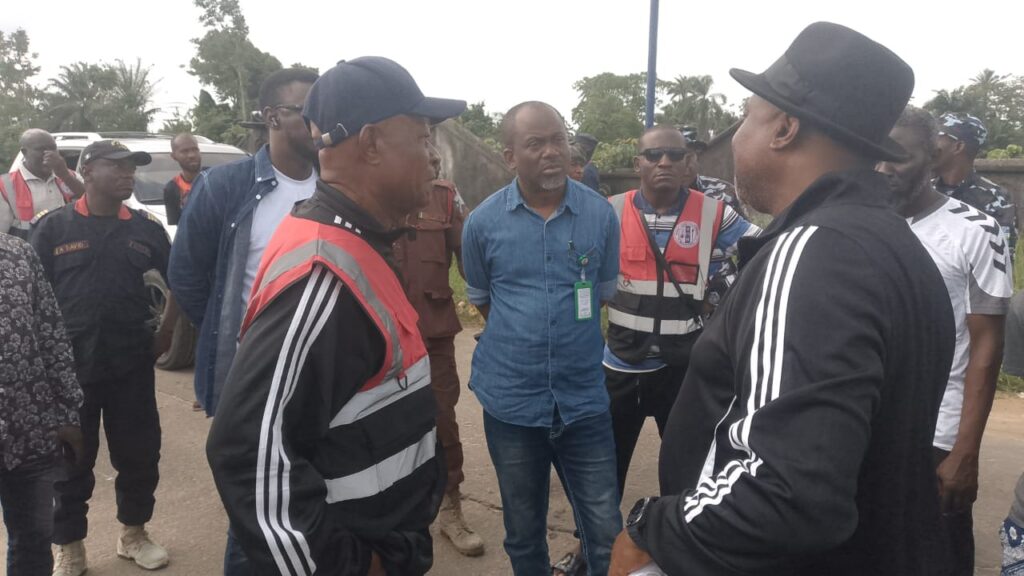
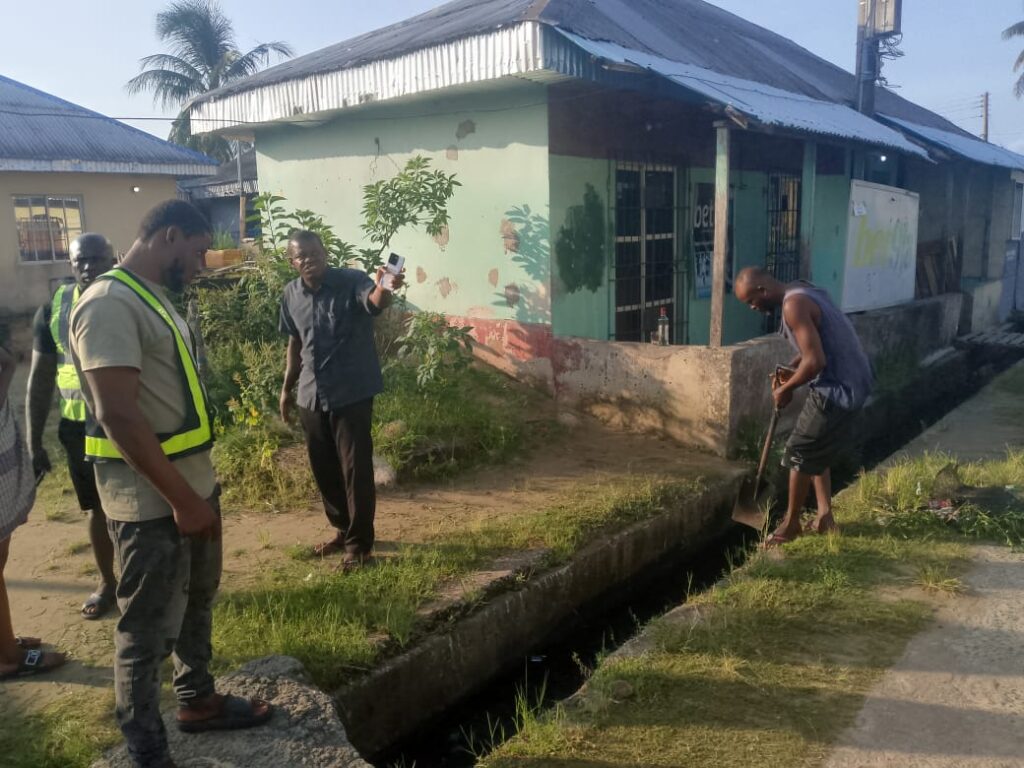
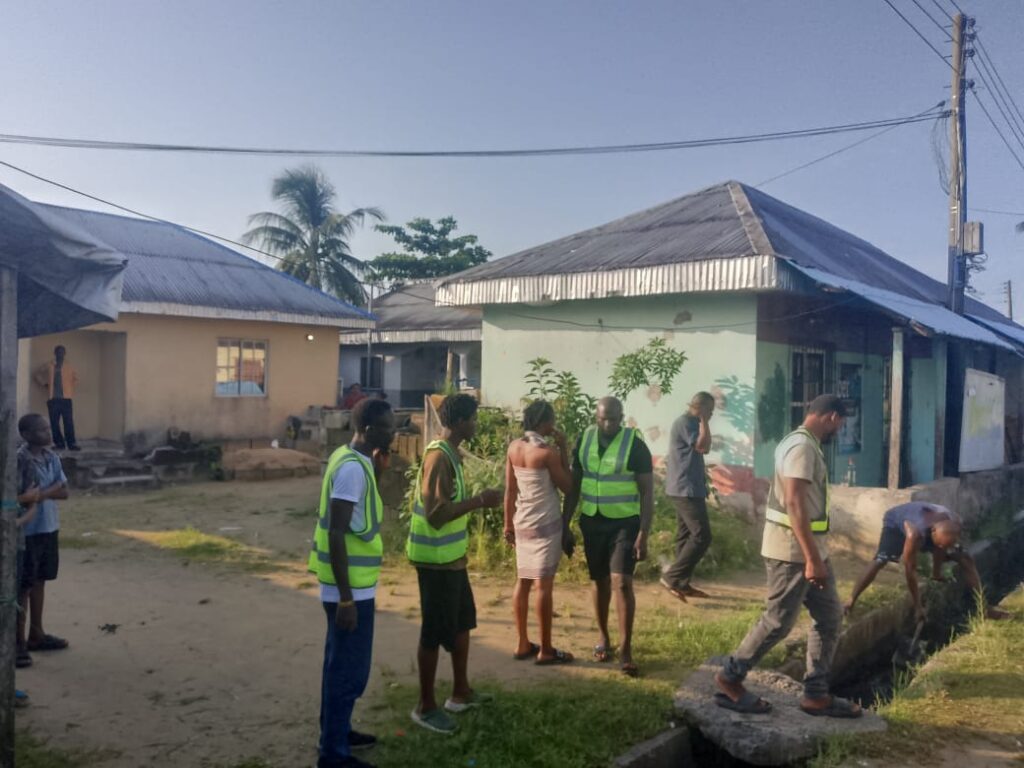
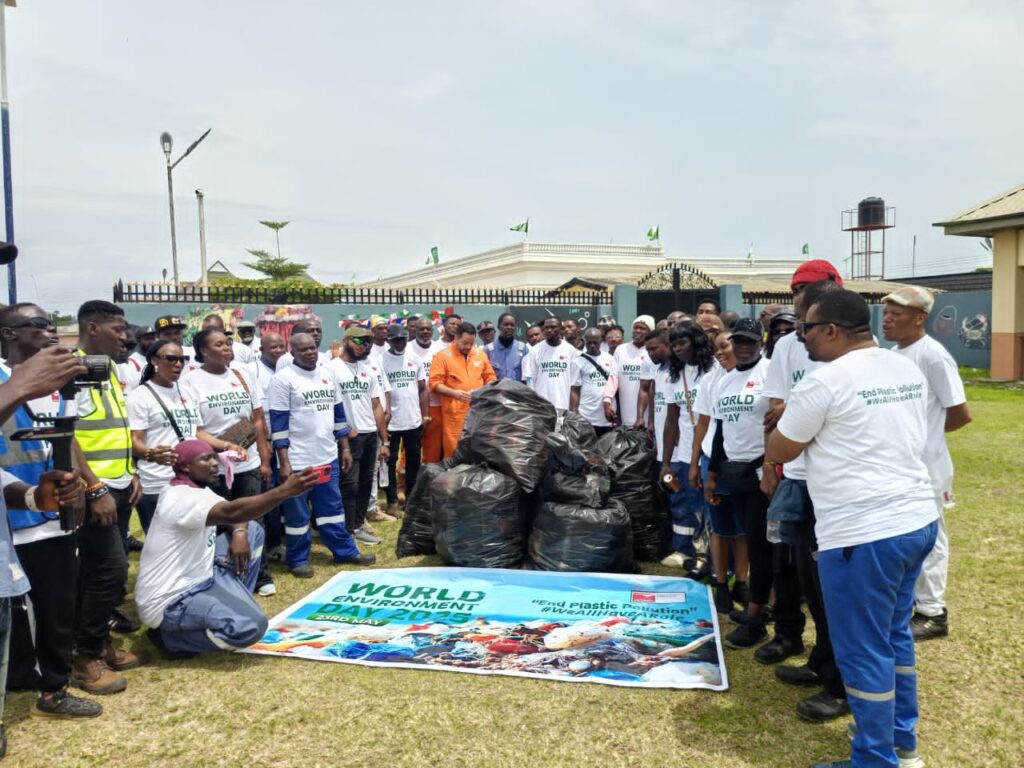
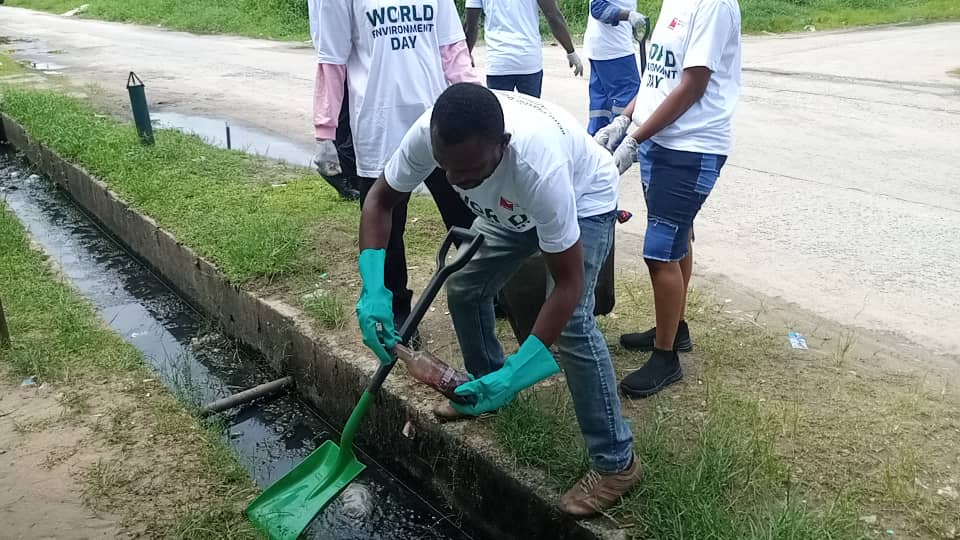
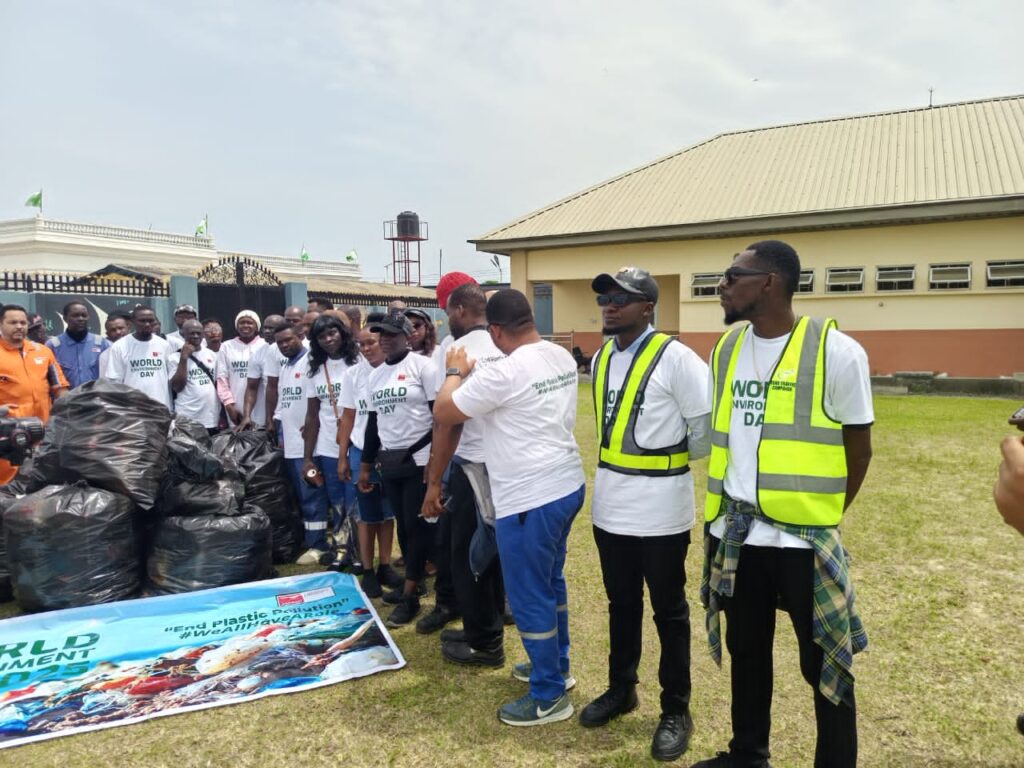
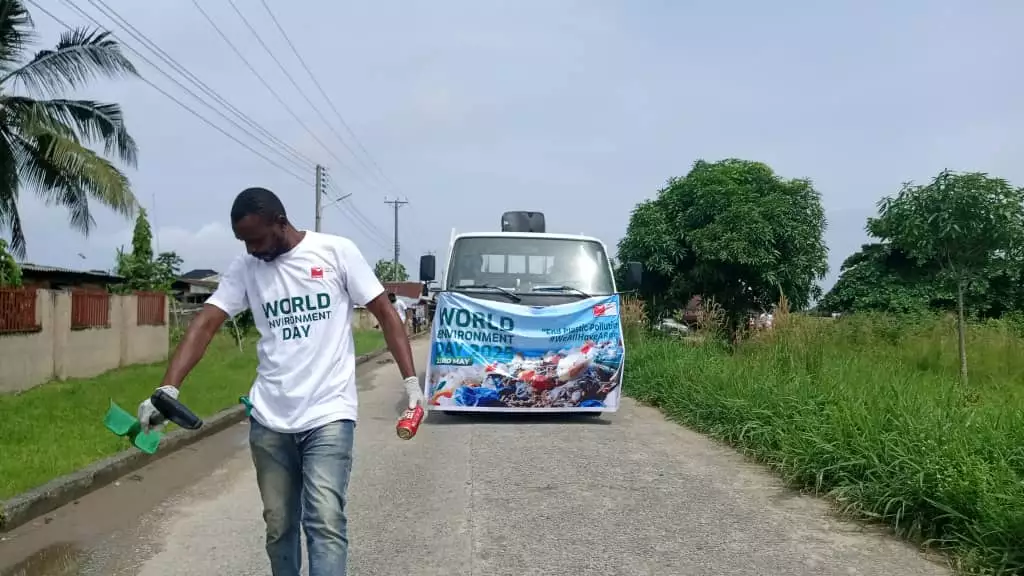
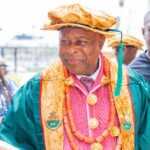



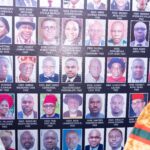
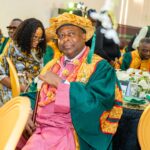

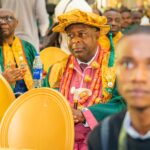

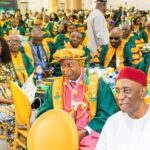
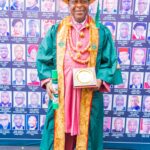

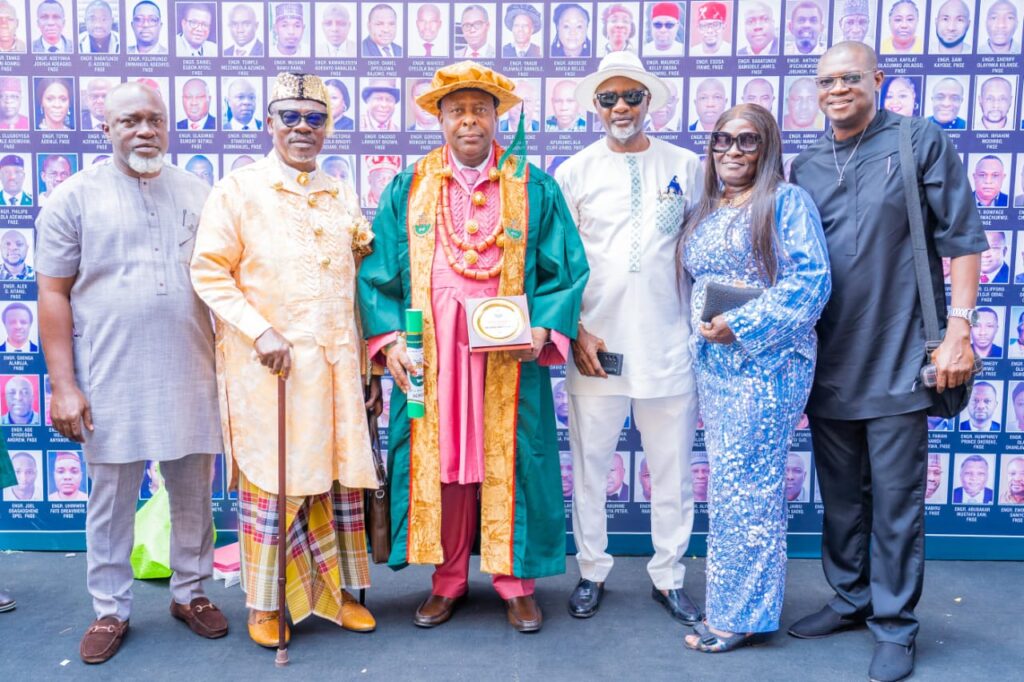

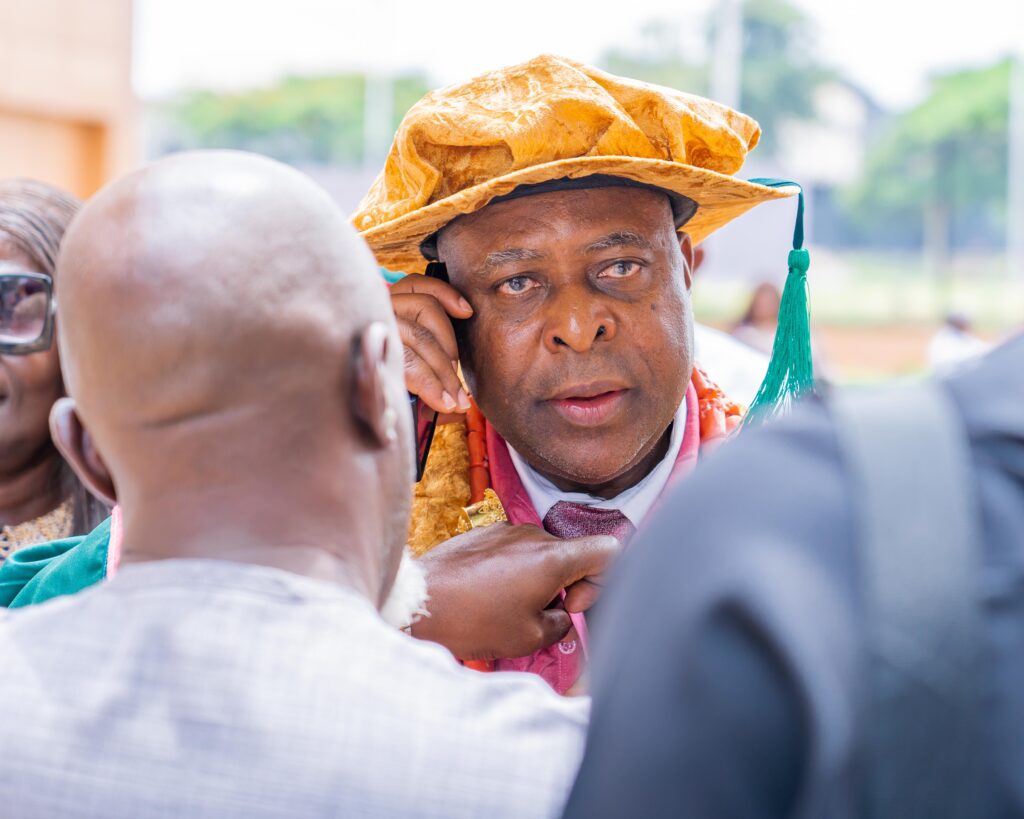
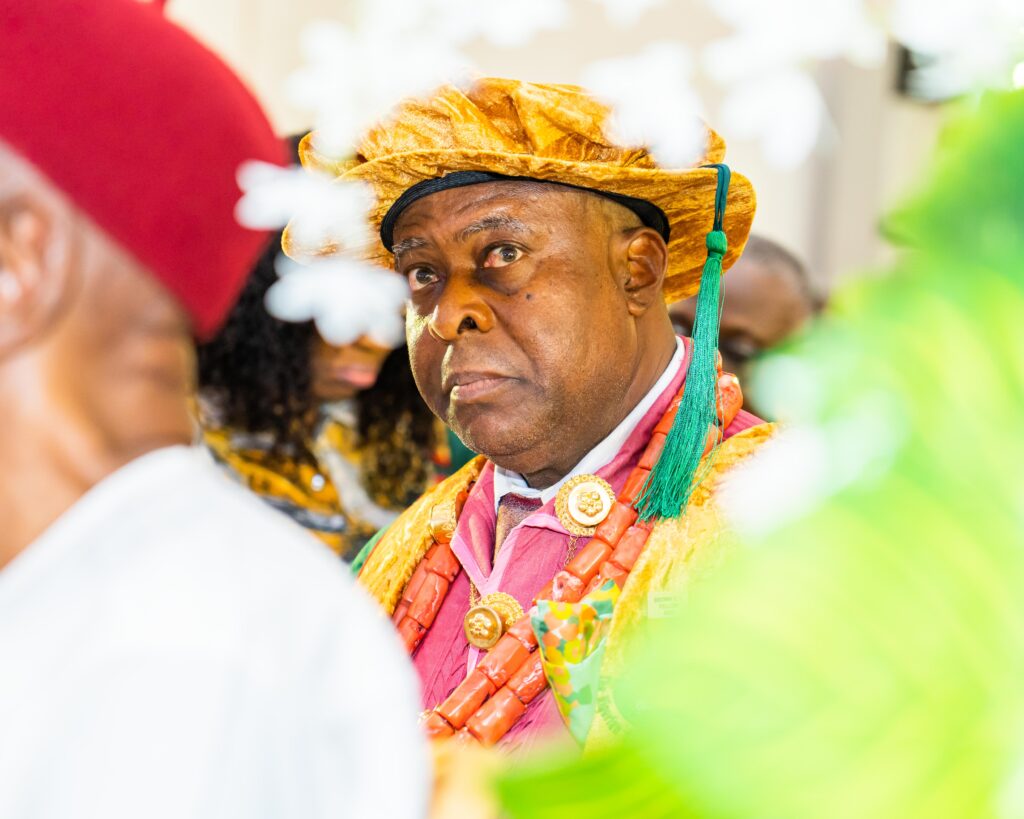
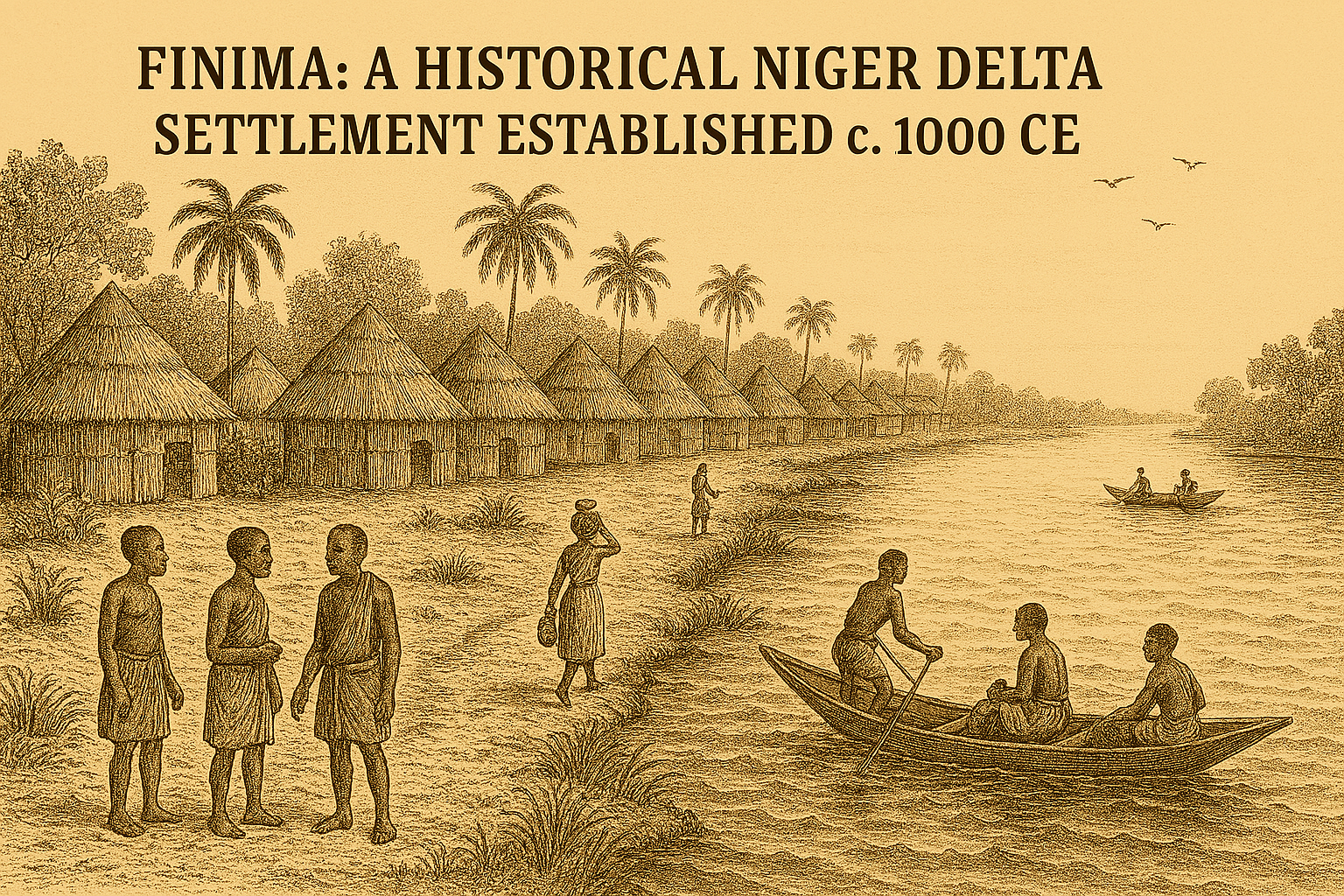


You must be logged in to post a comment.